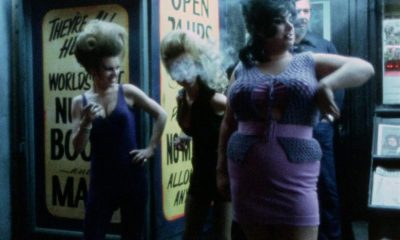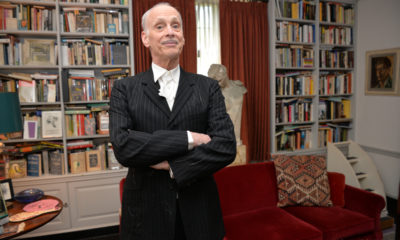Theater
America’s Bard
Legendary gay playwright Tennessee Williams honored in centennial festival
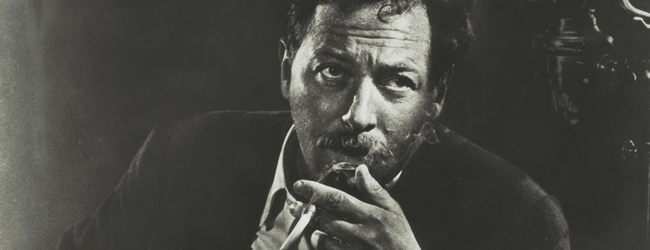
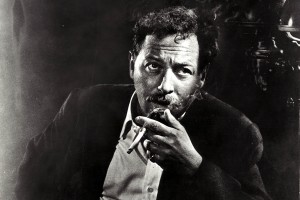
Tennessee Williams' homosexuality widely informed his work, often in coded ways. (Photo courtesy of the Tennessee Williams Papers, Rare Book and Manuscript Library, Columbia University)
He is the poet laureate of the American theater.
He pursued young men and boys with sexual voracity, especially hustlers, often rough trade, and those obsessively so in his latter years, but he also delighted greatly in the company of women.
His greatest creations on stage were in fact women, though some argue they were really coded figures who were actually gay males in drag. Certainly most of his heroines — especially perhaps Blanche DuBois in “A Streetcar named Desire” — were extensions of himself, valorous but doomed, haunted by desire, shadowed by failure, driven to despair and sometimes even to madness or to death.
He is Thomas Lanier Williams, born 100 years ago this weekend on Palm Sunday, March 26, 1911, in Columbus, Miss., to Edwina and Cornelius Williams. He was reared in an Episcopal rectory there, where his grandfather, Rev. Walter Dakin, was the local Episcopal priest, and later changed his name to “Tennessee” in honor of that same grandfather, who was born in that state.
Williams’ sense of sin and salvation in sexuality was central to his inner drives, says Derek Goldman, artistic director of this weekend’s Tennessee Williams Centennial Festival, a raft of plays and staged readings and panel discussions featuring appearances by among others Edward Albee and John Waters (Visit performingarts.georgetown.edu/tenncentfest/festival/ for details). For a long time, Williams was closeted about being gay, though he let it be known to his friends. Goldman says that though Williams had a long-time love relationship with his life partner Frankie Merlo, he was also “very promiscuous, and slept around a lot,” when “his need was for several boys a day at times, and the younger and prettier the better.”
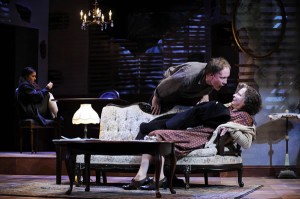
Georgetown University's production of 'Glass Menagerie,' one of Tennessee Williams' most famous works. From left are recent alumni Rachel Caywood and Clark Young with Prof. Sarah Marshall. (Photo by Sue Kessler, courtesy of Georgetown University)
In his writing, however, Goldman says, the thirst to slake his need for for constant sexual consummation, took a different form through sublimation, because in his writing, he “explores not so much the sex but how those desires have a place in society” — or do not. Goldman is also associate professor of theater and performance studies at Georgetown University, where the Williams Festival — known for short as “Tenn Cent Fest” — is housed, and he directs the university’s Davis Performing Arts Center. Goldman says the festival, most of which runs from today through Sunday, has “certainly been a labor of love,” including being able to teach a seminar on Williams work and “for this past year” he says he has been “steeped in all things Williams.”
Goldman’s own first encounter with Williams came on cable TV, however, when he was about 13 and saw the film adaptations of “Streetcar Named Desire” (1951,) and “Cat on a Hot Tin Roof” (1958). In each case, of course, Hollywood producers insisted in excisions, and Goldman admits that “I now blush at the fact that they were so sanitized, taking much of the sexuality out.”
For example, Goldman points out that in the original version of “Cat” (which was on Broadway in 1955 when it was directed by Elia Kazan and won the Pulitzer Prize for Drama), it’s clear that Brick (first played by the actor Ben Gazzara) is actually bisexual, or even gay, as he admits to his feelings for his pro football buddy Skipper who has committed suicide. Goldman says that “the back story for Brick is his relationship with Skipper,” and that while Brick’s “sexuality is pretty complicated,” he has certainly “lost interest in Maggie sexually,” and “we understand that he definitely has homosexual desires.”
We, of course, mainly know Williams from his work. That is the only reason he rates such a “Tenn Cent Fest” weekend, more than a quarter century after his death, as Goldman is now curating. But behind and beneath that work was always his beating heart. Reading his private writing shows him “so emotionally naked, as he was working out his own stuff,” Goldman says.
“It shows the undulation between guilt and shame (at being gay), not being accepted for who he really was, and also being able to claim it with pride,” Goldman says. “It was not just one thing. It was a stew of contradictions pulsing back and forth in private.”
In one of Williams’ one-act plays, “Suddenly, Last Summer,” that opened off-Broadway in 1958 as part of a double-bill titled “In The Garden District,” the play is basically two long monologues, considered one of his starkest and most poetic works. Best known from the 1959 film adaptation, it is a mystery melodrama about why Catherine (Elizabeth Taylor in the film) has been institutionalized for severe emotional disturbance, the result of the violent death of her cousin Sebastian by dismemberment and cannibalism by local boys, the objects of his predatory sexual desire, she had witnessed during their trip to Spain. Sebastian’s wealthy mother, Violet Venable (Katharine Hepburn) is determined to hide the exact circumstances of her son’s death and the fact that he was gay.
Maya Roth, Georgetown’s director of theater and performance studies, is directing “Suddenly, Last Summer” at the Davis Performing Arts Center April 7-16. “It is a play about violence against homosexual men,” she says. “It’s about Sebastian,” who is never seen, except at a distance in memory, “and his queerness that can’t be mentioned, the love that dare not speak its name, that’s what ‘Suddenly, Last Summer’ is about.” Though sanitized in the film version, it was written as one of his early plays but for a long time remained unproduced. When it was finally presented on stage, it was a kind of “coming out” for Williams, she says, “and it was really radical, and the reason why Hollywood had to airbrush it out.”
Asked about the legacy of Williams — his many plays as well as novels and short stories and occasional screenplays — Goldman says, “it’s more than a legacy, it’s the urgency still in his work, because it’s still very fresh,” in what he calls its “incredible lyricism and heat, the poetry of its fierce and ferocious imagery, in its language as windows into the soul.”
“He’s the poet of the vulnerable, whose compassion is in the size of his tenderness and faith in the beauty of the broken, those who have suffered the collateral damages of a world that doesn’t celebrate individuality, that doesn’t make allowances for the beauty of the broken,” Goldman says. “He’s the one who pierces the heart and the intellect, but it’s the heart, the emotional connection that we have to his work, that is most indelible.”
“He’s our American Shakespeare,” Goldman says, “combining the elevation of lyricism and magician-ship of language with the power of great story-telling,” and for Goldman, of all of Williams’ work there stands what he calls “the holy trinity,” his own “personal pantheon” of Williams’ three greatest creations: “The Glass Menagerie” (1944), “Streetcar Named Desire” (1948) and “Camino Real” (1953). The latter is being performed in a staged reading directed by Goldman tonight at 7:45 p.m.
Theater
‘Andy Warhol in Iran’ a charming look at intersection of art, politics
Mosaic production plumbs kidnapping plot of iconic artist for humor

‘Andy Warhol in Iran’
Through July 6
Mosaic Theater Company at Atlas Performing Arts Center
1333 H St., N.E., WDC
$70
Mosaictheater.org
Behind the blasé veneer, Andy Warhol was more curious than people knew. Particularly when it came to money. He kept a close eye on how the ultra-rich lived, what fellow artists were being paid and who was paying them, and, of course, all the new and more saleable ways of making and selling art.
In playwright Brent Askari’s “Andy Warhol in Iran,” now playing at Mosaic Theater Company, Warhol (Alex Mills) is brought outside of his usual area of interest when he lands face to face with a young revolutionary. While Warhol could be artistically revolutionary, he didn’t connect with the idea of forgoing the pursuit of money and fame for the infinitely more difficult task of achieving social justice.
The 90-minute play is not fully factual, but rather inspired by Warhol’s real life 1976 trip to Tehran to make portraits of the royal Pahlavi family in the waning days of their reign, with a focus on Farah Diba, the Shah’s elegant wife and Iran’s last empress.
The action unfolds in a Tehran hotel suite boasting a glorious view of the snowcapped Alborz Mountains not far from Iran’s vibrant and bustling capital. It’s here, disguised as room service, that Farhad (played by Nathan Mohebbi) gains entrance to Warhol’s rooms, seeking to kidnap the pop art star to garner attention for the university students’ movement.
Warhol meets the armed intruder with a sort of wide-eyed wonderment, flummoxed why he has been selected for abduction. Warhol can’t understand why a young man like Farhad wouldn’t prefer to be paid a big ransom on the spot, or be cast as a star in one of the Warhol Factory flicks.
When Farhad replies it’s because Warhol is the most decadent artist in the world, Warhol mistakenly takes it for the ultimate compliment. After all, his biggest successes had been connected to celebrity and consumerism (think Campbell’s Soup Cans. 1962).
For Warhol, decadence is aspirational. He made portraits of financiers, movie stars, and jet setters. In fact, he’d been obsessed with the lives of the rich and famous since he was a small kid in Pittsburgh thumbing through Photoplay Magazine while bed bound with Saint Vitus Dance.
Accompanying Warhol to Tehran (unseen) are his business manager Fred Hughes, and Bob Colacello, editor of Interview magazine. Together, they make a merry trio of gay social climbers. These kinds of trips were a boon to the artist. Not only did they solidify a new strata of high society contacts, but were also superbly lucrative, thickly padding the painter’s pockets.
While in Iran, Warhol wanted only to view Farah’s vast world-class collection of jewels, sample the caviar on tap, and get his Polaroids. Then he’d fly first class back to New York and transfer the images to silk screen and sell the portraits to the Persian royals at a hefty price. He didn’t foresee any obstacles along the way.
Serge Seiden’s direction is spot on. He’s rendered a wonderfully even two-hander with a pair of terrifically cast actors. And Seiden plumbs the piece for humor mostly drawn from the absurdity of the situation without missing any of the serious bits.
As Warhol, out actor Mills is instantly recognizable as the eccentric artist. He’s wearing the button-down shirt, jeans, blazer, glasses, and, of course the famed shock of white hair wig (here a little more Karen than Andy). His portrayal is better than an imitation. He gives a bit of the fey and confused, but has also infuses him with a certain dynamism.
The energy works well with the intensity of Mohebbi’s would-be kidnapper Farhad. And while it isn’t a romance, it’s not impossible to think that Warhol might fall for a handsome male captor.
The connection between art and politics is almost always interesting; and though not a super deep dive into the era or the life of an artist, “Andy Warhol in Iran” is a compelling, charming, and sometimes funny glimpse into that intersection.
Theater
‘Hunter S. Thompson’ an unlikely but rewarding choice for musical theater
‘Speaks volumes about how sad things land on our country’

‘The Untitled Unauthorized Hunter S. Thompson Musical’
Through July 13
Signature Theatre
4200 Campbell Ave., Arlington, Va.
$47 to $98
Sigtheatre.org
The raucous world of the counterculture journalist may not seem the obvious choice for musical theater, but the positive buzz surrounding Signature Theatre’s production of Joe Iconis’s “The Untitled Unauthorized Hunter S. Thompson Musical” suggests otherwise.
As the titular, drug addled and gun-toting writer, Eric William Morris memorably moves toward his character’s suicide in 2005 at 67. He’s accompanied by an ensemble cast playing multiple roles including out actor George Salazar as Thompson’s sidekick Oscar “Zeta” Acosta, a bigger than life Mexican American attorney, author, and activist in the Chicano Movement who follows closely behind.
Salazar performs a show-stopping number — “The Song of the Brown Buffalo,” a rowdy and unforgettable musical dive into a man’s psyche.
“Playing the part of Oscar, I’m living my Dom daddy activist dreams. For years, I was cast as the best friend with a heart of gold. Quite differently, here, I’m tasked with embodying all the toxic masculinity of the late ‘60s, and a rampant homophobia, almost folded into the culture.”
He continues, “My sexuality aside, I like to think that Oscar would be thrilled by my interpretation of him in that song.
“Our upbringings are similar. I’m mixed race – Filipino and Ecuadorian and we grew up similarly,” says Salazar, 39. “He didn’t fit in as white or Mexican American, and fell somewhere in the middle. Playing Oscar [who also at 39 in 1974 forever disappeared in Mexico], I pulled out a lot of experience about having to code switch before finally finding myself and being confident just doing my own thing.
“As we meet Oscar in the show we find exactly where’s he’s at. Take me or leave me, I couldn’t care less.”
In 2011, just three years after earning his BFA in musical theater from the University of Florida in Gainesville, Salazar fortuitously met Iconis at a bar in New York. The pair became fast friends and collaborators: “This is our third production,” says George. “So, when Joe comes to me with an idea, there hasn’t been a moment that I don’t trust him.”
In “Be More Chill,” one of Iconis’s earlier works, Salazar originated the role of Michael Mell, a part that he counts as one of the greatest joys of artistic life.
With the character, a loyal and caring friend who isn’t explicitly queer but appeals to queer audiences, Salazar developed a fervent following. And for an actor who didn’t come out to his father until he was 30, being in a place to support the community, especially younger queer people, has proved incredibly special.
“When you hear Hunter and Oscar, you might think ‘dude musical,’ but I encourage all people to come see it.” Salazar continues, “Queer audiences should give the show a shot. As a musical, it’s entertaining, funny, serious, affecting, and beautiful. As a gay man stepping into this show, it’s so hetero and I wasn’t sure what to do. So, I took it upon myself that any of the multiple characters I play outside of Oscar, were going to be queer.
Queer friends have seen it and love it, says Salazar. His friend, Tony Award-winning director Sam Pinkleton (“Oh, Mary!”) saw Hunter S. Thompson at the La Jolla Playhouse during its run in California, and said it was the best musical he’d seen in a very long time.
“Since the work’s inception almost 10 years ago, I was the first Oscar to read the script. In the interim, the characters’ relationships have grown but otherwise there have been no major changes. Still, it feels more impactful in different ways: It’s exciting to come here to do the show especially since Hunter S. Thompson was very political.”
Salazar, who lives in Los Angeles with his partner, a criminal justice reporter for The Guardian, is enjoying his time here in D.C. “In a time when there are so many bans – books, drag queens, and travel — all I see is division. This is an escape from that.”
He describes the Hunter Thompson musical as Iconis’s masterpiece, adding that it’s the performance that he’s most proud of to date and that feels there a lot of maturity in the work.
“In the play, Thompson talks to Nixon about being a crook and a liar,” says Salazar. “The work speaks volumes about how sad things land on our country: We seem to take them one step forward and two steps back; the performance is almost art as protest.”
Theater
A hilarious ‘Twelfth Night’ at Folger full of ‘elegant kink’
Nonbinary actor Alyssa Keegan stars as Duke Orsino
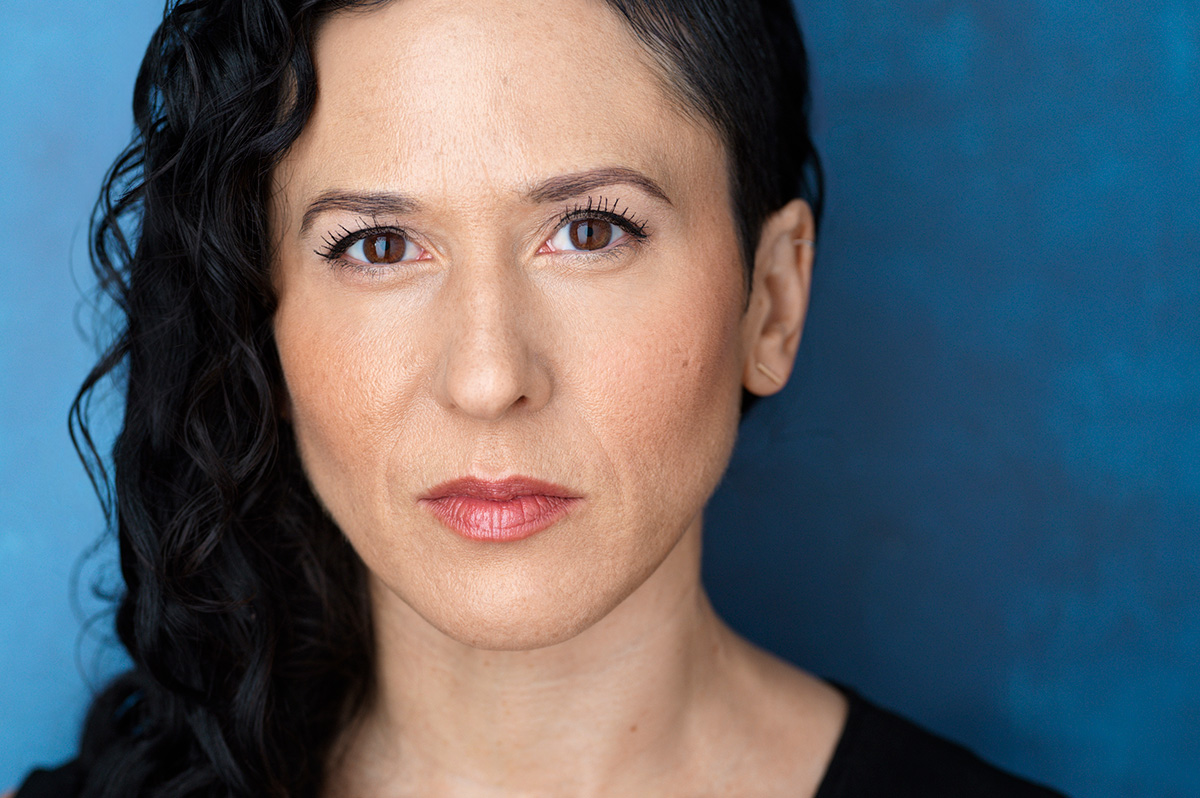
‘Twelfth Night’
Through June 22
Folger Theatre
201 East Capitol St., S.E.
$20-$84
Folger.edu
Nonbinary actor Alyssa Keegan (they/them)loves tapping into the multitudes within.
Currently Keegan plays the melancholic Duke Orsino in Folger Theatre’s production of Shakespeare’s romantic comedy “Twelfth Night.” Director Mei Ann Teo describes the production as “sexy, hilarious, and devastating” and full of “elegant kink.”
Washington-based, Keegan enjoys a busy and celebrated career. Her vast biography includes Come From Away at Ford’s Theatre; Cat on a Hot Tin Roof (Helen Hayes Award, Best Actress) and Paula Vogel’s How I Learned to Drive, both at Round House Theatre; Diana Son’s Stop Kiss directedby Holly Twyford for No Rules Theatre Company; and Contractions at Studio Theatre, to name just a few.
In addition to acting, Keegan works as a polyamory and ethical non-monogamy life and relationship coach, an area of interest that grew out of personal exploration. For them, coaching seems to work hand in hand with acting.
WASHINGTON BLADE: You’re playing the lovesick Orsino in Twelfth Night. How did that come about?
ALYSSA KEEGAN: The director was looking to cast a group of actors with diverse identities; throughout auditions, there were no constraints regarding anyone’s assigned sex at birth. It was really a free for all.
BLADE: What’s your approach to the fetching, cod-piece clad nobleman?
KEEGAN: Offstage I identify as completely nonbinary; I love riding in this neutral middle space. But I also love cosplay. The ability to do that in the play gives me permission to dive completely into maleness.
So, when I made that decision to play Orsino as a bio male, suddenly the part really cracked open for me. I began looking for clues about his thoughts and opinions about things like his past relationships and his decision not to date older women.
Underneath his mask of bravura and sexuality, and his firmness of feelings, he’s quite lonely and has never really felt loved. It makes sense to me why his love for Olivia is so misguided and why he might fall in love with the Cesario/Viola character.
BLADE: As an actor, do you ever risk taking on the feelings of your characters?
KEEGAN: Prior to my mental health education, yes, and that could be toxic for me. I’ve since learned that the nervous system can’t tell the difference between real emotional distress and a that of a fully embodied character.
So, I created and share the Empowered Performer Project. [a holistic approach to performance that emphasizes the mental and emotional well-being of performing artists]. It utilizes somatic tools that help enormously when stepping into a character.
BLADE: Has changing the way you work affected your performances?
KEEGAN: I think I’m much better now. I used to have nearly debilitating stage fright. I’d spend all day dreading going onstage. I thought that was just part of the job. Now, I’ve learned to talk to my body. Prior to a performance, I can now spend my offstage time calmly gardening, working with my mental health clients, or playing with my kid. I’m just present in my life in a different way.
BLADE: Is Orsino your first time playing a male role?
KEEGAN: No. In fact, the very first time I played a male role was at the American Shakespeare Center in Staunton, Va. I played Hipolito in Thomas Middleton’s The Revenger’s Tragedy.
As Hipolito, I felt utterly male in the moment, so much so that I had audience members see me later after the show and they were surprised that I was female. They thought I was a young guy in the role. There’s something very powerful in that.
BLADE: Do you have a favorite part? Male or female?
KEEGAN: That’s tough but I think it’s Maggie the Cat. I played the hyper-female Maggie in Tennessee Williams’ Cat on a Hot Tin Roof at Round House. In the first act she didn’t stop talking for 51 minutes opposite Gregory Wooddell as Brick who barely had to speak. That lift was probably the heaviest I’ve ever been asked to do in acting.
BLADE: What about Folger’s Twelfth Night might be especially appealing to queer audiences?
KEEGAN: First and foremost is presentation. 99% of the cast identify as queer in some way.
The approach to Shakespeare’s text is one of the most bold and playful that I have ever seen. It’s unabashedly queer. The actors are here to celebrate and be loud and colorful and to advocate. It’s a powerful production, especially to do so close to the Capitol building, and that’s not lost on any of us.
-

 U.S. Supreme Court5 days ago
U.S. Supreme Court5 days agoSupreme Court upholds ACA rule that makes PrEP, other preventative care free
-

 U.S. Supreme Court5 days ago
U.S. Supreme Court5 days agoSupreme Court rules parents must have option to opt children out of LGBTQ-specific lessons
-

 District of Columbia5 days ago
District of Columbia5 days agoActivists protest outside Hungarian Embassy in DC
-

 Virginia4 days ago
Virginia4 days agoSpanberger touts equality, reproductive rights in Arlington



